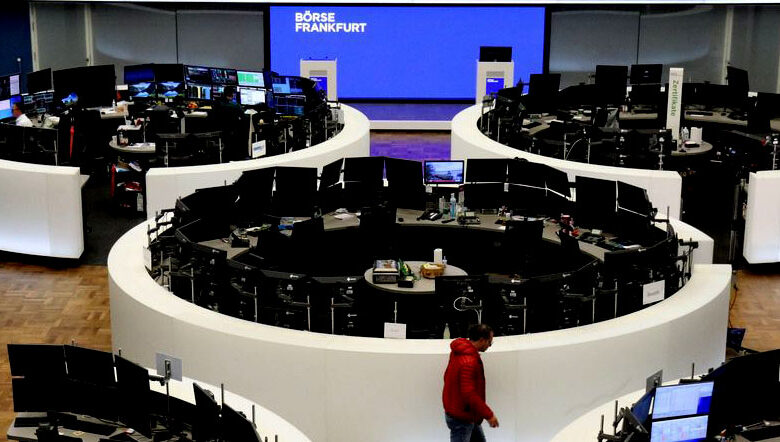European Stocks Nudge Down; Italian Banks, Chinese Trade Data Add Pressure

In a bit of a dreary turn of events, Tuesday saw European stock markets tip toeing on a bit of a decline. The cause? A trifecta of worries. Investors were left chewing over a fresh round of German inflation figures, signs of a wobble in Italy’s banking sector, and a letdown from Chinese trade data.
As the clock struck 03:50 ET (that’s 07:50 in GMT), the picture wasn’t too rosy. Germany’s DAX index had slipped 0.2%, France’s CAC 40 was treading water, and the FTSE 100 over in the U.K had retreated by a slight 0.1%.
Oh, Germany. Inflation’s putting on the brakes in July, isn’t it?
The week kicked off with a global reveal of inflation stats and Germany, being Europe’s biggest economy, took the spotlight. Early Tuesday, it became clear that consumer prices had only nudged up by 0.3% in July, mirroring the previous month.
From the looks of it, the annual inflation rate had taken a dip from 6.4% to 6.2% since last month. A tiny shift, sure, but it paints a clear picture. Prices are on a downward trend in the eurozone’s powerhouse economy. This might nudge the European Central Bank to hit the pause button on its marathon tightening cycle come their September meeting.
And this is just the warm-up act. Keep your eyes peeled for more hot-off-the-press inflation figures from China and the United States, set to drop later this week. They’re likely to set the mood for the market for the rest of the week.
Chinese trade data, not exactly a sight for sore eyes, huh?
Expectations have been high for the U.S. economy to make a smooth landing this year, steering clear of a recession. The Federal Reserve’s decision to wrap up its aggressive interest rate hikes sooner than expected has played a big part in boosting global stock confidence.
But don’t get too comfortable just yet. Word from the Fed’s top dogs, President Harker from Philadelphia and President Barkin from Richmond, later on Tuesday, could be the game-changer. Slowing U.S. inflation could add another layer to this narrative.
Meanwhile, over in China, the world’s runner-up economy, things aren’t looking too peachy. Trade numbers out on Tuesday painted a grim picture. Imports plummeted 12.4% in July year-on-year, doubling the 5% drop forecasted. Exports too took a hit, shrinking 14.5%, more severe than the 12.5% predicted and an increase from last month’s 12.4% dip.
Italian Banks like Intesa Sanpaolo and UniCredit hit a snag, huh?
Back in Europe, Italian banks, including Intesa Sanpaolo and UniCredit, saw their stocks take a 6% nosedive. Why, you ask? Blame it on the Italian government’s spanking new 40% tax on bank “extra profits” this year.
And that’s not all. There’s more banking drama expected over in the U.S., with Moody’s credit agency raining down downgrades on the ratings of 10 small to midsize U.S. lenders.
Elsewhere, Bayer’s stock is down by 0.4%, thanks to a gloomy forecast for its Crop Science and Pharma divisions. And then there’s Glencore, the mining giant, whose stock took a 3% hit after announcing halved earnings in the first half.
Crude’s pulling back after the weak Chinese data, isn’t it?
Oil prices also took a hit on Tuesday. The weak Chinese trade figures threw a wet blanket on things, and now all eyes are on the upcoming U.S. stockpile numbers.
Imports to China, the world’s biggest oil consumer, slumped 18.8% in July from the previous month. However, they’re up 17% from last year’s low base. Later in the session, we’ll hear from the American Petroleum Institute. Expectations are high for another drawdown after last week’s significant drop.
By the way, at 03:50 ET, U.S. crude futures were trading 0.8% lower at $81.29 a barrel, while the Brent contract had dropped 0.8% to $84.67.
Oh, and let’s not forget. Gold futures slipped 0.2% to $1,965.55/oz, while the EUR/USD is trading 0.2% lower at 1.0978. Quite the day, huh?





